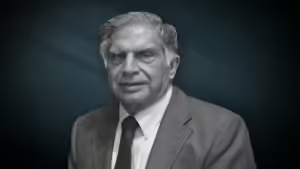The End of an Era: Ratan Tata’s Lasting Influence on Global Business

The recent passing of Ratan Tata, the former chairman of the Tata Group, marks the end of an era for Indian business and philanthropy. Tata, who died at the age of 86, transformed a family business into a global powerhouse, leaving behind a legacy that will continue to influence generations to come.
A Visionary Leader
Ratan Tata took the helm of the Tata Group in 1991, inheriting a diverse conglomerate with interests ranging from steel to hospitality. Under his leadership, the group underwent a remarkable transformation, focusing on globalization and innovation. He spearheaded high-profile acquisitions, including Tetley Tea for $432 million in 2000 and Corus Steel for $13 billion in 2007, which was the largest takeover by an Indian company at that time. His bold move to acquire Jaguar Land Rover in 2008 for $2.3 billion further solidified Tata Group’s position on the global stage.
Expanding Global Footprint
Under Tata’s stewardship, the Tata Group expanded its operations to over 100 countries, significantly boosting India’s industrial profile globally. The group’s revenues soared past $100 billion by 2011, showcasing its robust growth trajectory. Tata’s strategic vision allowed the conglomerate to diversify into various sectors, including telecommunications, automotive, and consumer goods.
Commitment to Innovation
Tata was not just a businessman; he was a pioneer in innovation. The launch of the Tata Indica in 1998 marked India’s first indigenously designed passenger car, while the Tata Nano, introduced in 2008 as the world’s most affordable car, aimed to make personal transportation accessible to millions. Although the Nano faced challenges in its commercial journey, it highlighted Tata’s commitment to addressing local needs through innovative solutions.
Philanthropy and Social Responsibility
Ratan Tata’s influence extended beyond business; he was deeply committed to philanthropy. Approximately two-thirds of Tata Sons’ share capital is held by philanthropic trusts, reflecting his belief in giving back to society. Initiatives like the Taj Public Service Welfare Trust were established to support victims of crises, showcasing his dedication to social welfare.
A Legacy of Integrity
Known for his humility and ethical leadership, Ratan Tata was admired not just for his business acumen but also for his integrity. He maintained a relatively controversy-free reputation throughout his career, a rarity in high-stakes corporate environments. His quiet demeanor and modest lifestyle endeared him to many, making him one of India’s most respected business leaders.
Conclusion: An Enduring Influence
As we reflect on Ratan Tata’s life and contributions, it is clear that his legacy will endure long after his passing. He transformed the Tata Group into a global leader while emphasizing ethical practices and social responsibility. His vision and courage have left an indelible mark on both Indian industry and global business practices. The lessons learned from his journey will continue to inspire future generations of entrepreneurs and leaders around the world. Ratan Tata may be gone, but his influence will resonate for years to come.